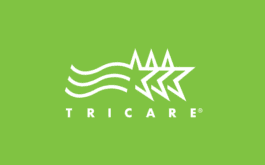Four Signs that it’s Time for a Higher Level of Care
1. Your client has hit a plateau in therapy.
Often eating disorder and disordered eating clients plateau in outpatient therapy alone because there is not a direct food and meal supervision component. The individuals often devote a large amount of energy to convince their therapist that he or she is doing well and progressing. Eating disorder clients are often people pleasers and seek validation for achievement. Without direct meal supervision, support with meal preparation, and working closely with a dietitian to identify consistent food recalls, it is often an insurmountable challenge for clients with eating disorders to make consistent gains in outpatient therapy alone.
2. Your client pulls back at mention of a treatment center or program.
It is not common for the intervention of a higher level of care for eating disorder clients to be a tricky one, demanding both grace and firmness to support the scared client with making an accountable choice. I have supervised therapists who become entangled in countertransference with eating disorder clients. When we hear things like, “He/She trusts me a lot and trust would be broken if I referred to a treatment center” then we know the client is crafting a case to avoid the treatment setting. Removing obstacle to treatment is an important part of the therapist-client relationship.
3. Your client is terrified to integrate a registered dietitian into treatment.
When clients are in the midst of disordered eating or eating disorder struggles, they often avoid dietitians and eating disorder specialists like the plague. My clients in recovery tell me that at the times when they were the most compromised, they sought out non-specialists and avoided dietitians. Therapy is only a piece of the treatment team and collaboration with a multidisciplinary team including medical doctor and registered dietitian are key components for recovery. Avoidance of talking about the food component is avoidance of what is needed to fully recover.
4. If you do not have current lab results on your client
One of the benefits of working with a multidisciplinary team is the ability to collaborate weekly and receive updates on the client’s weight and labs. Even the most adept clinician cannot tell visually if a client is doing damage to their body with purging, bingeing, or restricting behaviors. Potassium and other electrolyte imbalances are one of the most dangerous health consequences of an eating disorder, which are not visible upon physical assessment. Weekly, biweekly, or monthly “blind” weights are a good way to monitor behavioral trends that may be reflected in weight trends.
When it’s Time to Refer
We are your partners in your client’s care. We will coordinate with you to ensure a seamless transition to our treatment center. While your client is with us, we will keep you informed on his or her progress as well as plan a smooth transition back to your care.













